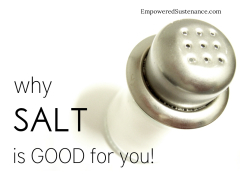 4 tips for getting seriously healthy from one of the
‘Best Doctors in America’*
4 tips for getting seriously healthy from one of the
‘Best Doctors in America’*
There’s a reason – well, several – why so many diseases are increasing in frequency in the United States, making some that were almost unheard of 100 years ago commonplace today, says Robert Thompson, M.D., an OB/GYN and integrative medicine specialist deemed by his peers to be in the top 5 percent of U.S. physicians.
The United States is now 46th in men’s mortality and the absolute worst country in the industrialized world for first-day infant mortality,” says Thompson, author of “The Calcium Lie II: What Your Doctor Still Doesn’t Know,” (calciumliebook.com), a new book that details the roles minerals play in overall health and how to identify and correct deficiencies and imbalances.
“Based on the current rate of autism diagnoses, there will be no ‘normal’ male babies born in the U.S. by 2030,” he says. “The current rate of diabetes suggests 95 percent of our adult population will be diabetic by 2030. The number of children with life-threatening allergies has increased more than 1,000 percent since 1995.”
A perfect storm of corporate power, profits and public misinformation has succeeded in overwhelming the basic biochemical and physiological tenets of good health, says Thompson, who published his first book, “The Calcium Lie: What Your Doctor Doesn’t Know Could Kill You,” in 2008.
“Mineral deficiencies are responsible for a host of health problems, which are incorrectly treated by drugs,” Thompson says. “We’re told by the government and the medical community that we should be ingesting certain amounts of vitamin and mineral supplements to prevent disease, like osteoporosis, when in reality, the recommendations lead to other very serious health problems.”
Thompson offers these suggestions for Americans to take charge of their health:
• Get a hair tissue mineral analysis (HTMA) to determine your mineral status.
This may be the most important health test that exists, Thompson says. Only when you and your doctor know for sure your mineral status and important ratios can you adapt your diet, minerals and supplements to work toward proper balance.
Thompson recommends using Trace Elements, Inc. clinical lab in Addison, Texas, because it adheres to the highest standards. The lab accepts only samples submitted by health-care providers, including physicians, nutritionists, and others, so you need to find one who does HTMA and uses that lab. (Individuals who can’t find a provider can call the lab for help in locating one; HTMA is prohibited in New York state.)
• Do not take calcium supplements unless tests indicate a deficiency.
We’ve all been told that we must ingest lots of calcium to ensure strong bones. In fact, calcium is just one of at least 12 minerals in our bones, all of which must be present in the right balance for good bone health. Calcium has been added to so much of our food, it’s unlikely most of us are deficient. And yet, people are told to take calcium supplements. Excess calcium can cause kidney and gallstones, arterial plaque, bone spurs, calcium deposits in tissues other than bone, and brain cell dysfunction, brain shrinkage and dementia. Instead of calcium, Thompson instructs all his patients and readers to take a minimum of 3 grams of trace minerals derived from sea salt every day.
• Salt – sodium – is necessary for digestion, nutrient absorption, cell function and metabolism.
Limiting salt intake is not only the wrong advice for 90 percent of the people at risk for high blood pressure, it also contributes to the lack of minerals in our bodies. Many of us are actually deficient in sodium.
Salt is a mineral, and unrefined sea salt and rock salt is the best source of sodium and ionic minerals. If you are sodium deficient, add harvested pure sea salt liberally to your foods. It is important to use pure sea salt, and not the common table salt, as processing has stripped common table salt of its mineral value.
• Use only vitamin supplements made from 100 percent organic whole foods that have been vine-ripened.
Almost all of us need supplements because contemporary food supplies lack adequate amounts of vitamins and minerals, thanks to soil depletion. Most store-bought vitamins include just one component of the many complex molecular elements contained in the naturally occurring vitamin source. You need all of the nutrient components to get the full benefits.
The best natural sources of readily available vitamins include raw seeds, stabilized rice bran powder, vine-ripened fresh fruit and berries (vitamin C).
*Robert Thompson, M.D., was added to the peer-reviewed directory, “Best Doctors in America,” in 1996.


